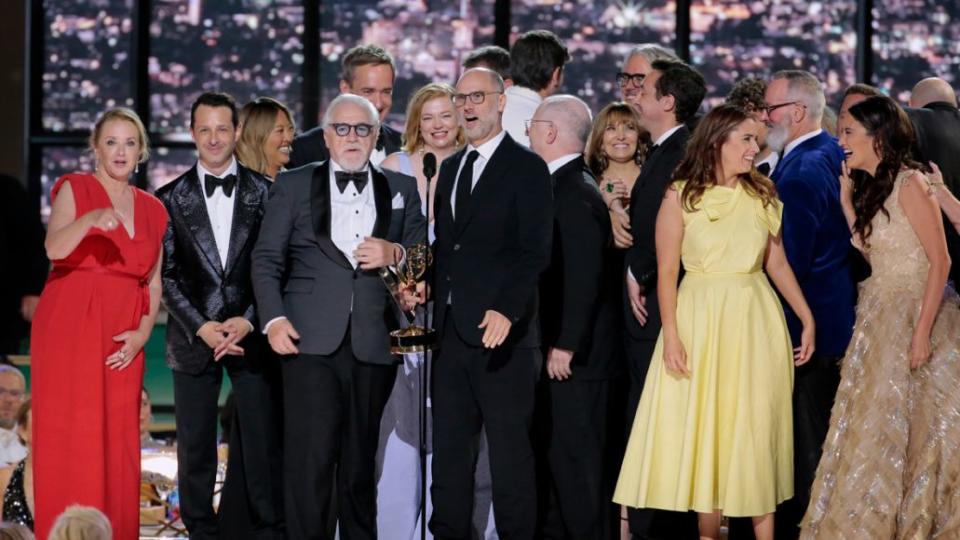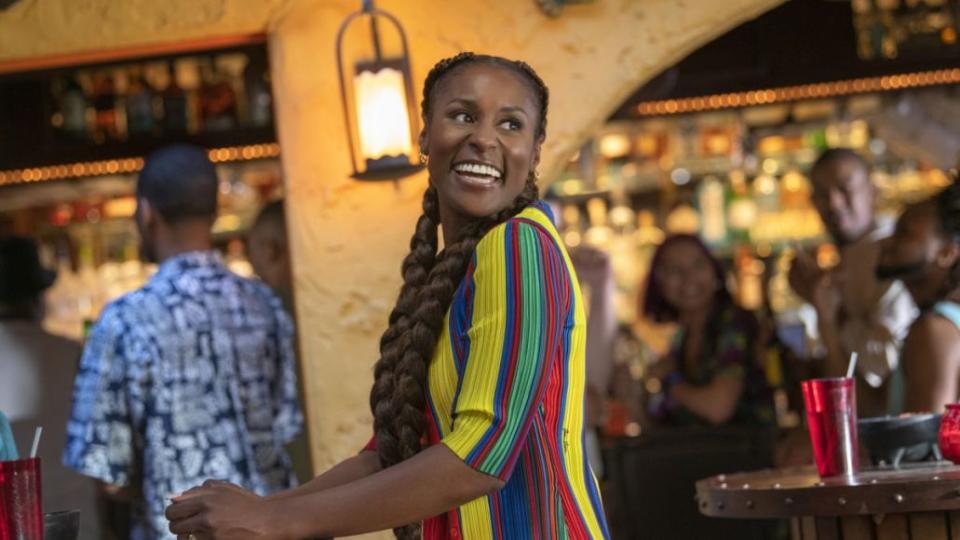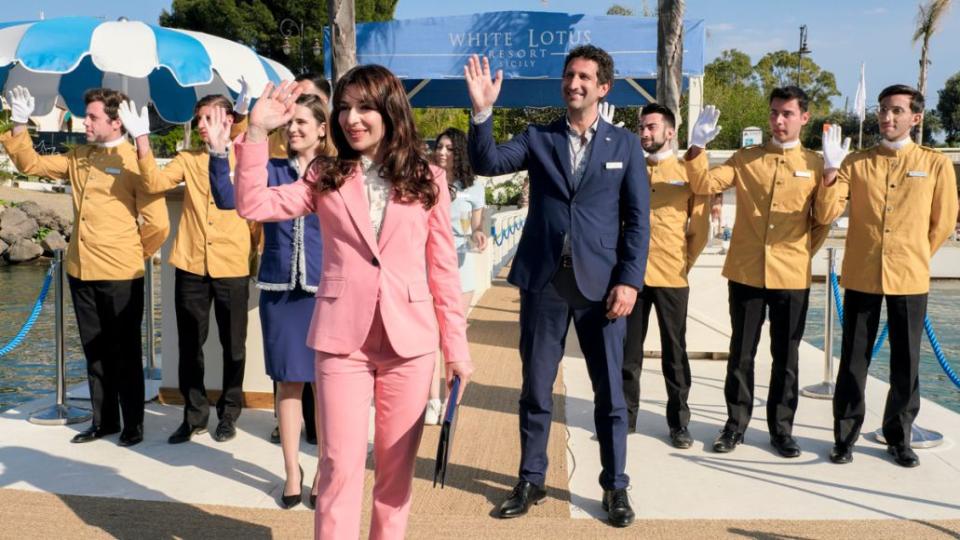Why HBO’s Moves Could Signal the End of the Streaming Wars
The post Why HBO’s Moves Could Signal the End of the Streaming Wars appeared first on Consequence.
Welcome to a Consequence Chat, a feature that finds Consequence staff members debating the biggest stories in pop culture. Today, we look what HBO’s latest moves mean for the Streaming Wars. The transcript below has been lightly edited.
Liz Shannon Miller (Senior Entertainment Editor): It continues to be a turbulent time for Warner Bros. Discovery, which recently made news on multiple fronts: Top executives for TCM, the company’s beloved classic film brand, were laid off in a move that had even Scorsese and Spielberg concerned. In addition, the company is also reportedly selling off about half of its film and TV music catalog, and on June 21st, reports suggested that HBO’s newish parent company was in talks to license parts of the HBO library to Netflix.
It’s that last development that made us ask ourselves what, exactly, HBO is doing right now. Or, more specifically, what is Warner Bros. Discovery doing with one of television’s most significant brands, one inextricably linked with the rise of television as the culture’s dominant medium?
Wren Graves (Features Editor): Liz, let’s start with a quote that I know you’ve heard before:
“The goal is to become HBO faster than HBO can become us.” Netflix co-CEO Ted Sarandos said that in 2013, and those words could have been the first shots fired in the Streaming Wars — the period when splashy upstarts and deep-pocketed legacy companies battled for influence over an emerging medium. Now, the Streaming Wars may be coming to an end, not with a bang, but with a licensing agreement. The Netflix-HBO alliance would have been unimaginable a decade ago but today it’s unsurprising, as WBD looks to cut costs and challenge old assumptions about HBO. How did we get to this point?
Liz: In this specific case, the answer seems pretty easy: Current Warner Bros. Discovery CEO David Zaslav is doing whatever he can to make more money off his company’s vast library of content. So, now that WBD is done obliviating stuff off the platform known as Max, the next step is to take shows that may no longer be attracting new viewers on Max and see if they can find audiences on a different platform.
HBO has never been allergic to letting its titles be seen elsewhere; in the days before streaming, it even licensed shows like The Sopranos and Sex and the City to cable networks such as A&E and TBS (with the boobs and swears edited out). But the launch of HBO Go in 2010 was a clear indication that the network didn’t want to turn to third-party streaming services like Netflix to host its own content — especially given that Netflix was on the verge of becoming a major contender on HBO’s home court: the Emmy Awards.

Succession wins Outstanding Drama at the 2022 Emmy Awards (NBC)
There’s little indication that Zazlav, at least, is concerned about the Emmys this year (and frankly, if my roster of contenders included the final season of Succession, not to mention Barry, The White Lotus, House of the Dragon, and The Last of Us, I wouldn’t be concerned either). But nearly every decision made by WBD so far feels exceptionally short-term in its thinking. For example, if Insecure becomes a huge hit on Netflix, it could lead to those new fans thinking of the series as a Netflix original. It’s probably not the desired outcome for anyone at HBO. That’s the price of making that deal, though.
It’s a complicated time for the brand in general, especially as the popularity of its shows runs up against the unpopular executive decisions that keep being made. Personally, I think that consumers are far more inclined to overlook the latter as long as the quality of the former holds up. But every time I open up the Max homepage to find that the platform is once again trying to hard-sell me on the Property Brothers, my concern for HBO’s future grows.
Wren: I know the Property Brothers are identical twins, but one of them is pretty, and one of them is hot, and that’s all I have to say on the matter.
Liz: Oh my god, we could spend a week unpacking that.
Wren: I’d rather unpack HBO’s reinvention! Those Emmys you mentioned are just part of an HBO mystique that goes all the way back to its famous tagline: “It’s not TV, it’s HBO.” The allure has always been wrapped in the promise of “premium” content, something worth paying extra to access. HBO was to streaming what Lexus is to cars, what Apple is to phones. Even during those licensing experiments when you could watch The Sopranos’ premium acting on A&E, you still had to pay extra to see the premium boobs.
But increasingly, that’s no longer the case. Insecure is potentially coming to Netflix. Earlier this year some HBO Max titles including Westworld were opened up to Roku and Tubi, two brands not exactly known for being picky. HBO is no longer upscale, it’s everywhere. Under Zaslav, it’s not TV or HBO, it’s just content.
Do you think that identity can be saved? Does it even matter?

Insecure (HBO)
Liz: It’s funny to say that a brand is in peril when, as mentioned, it’s probably going to be the big winner at this year’s Emmys in a number of categories. And while it might feel different when you load up Max, on a short-term level the execs haven’t messed too much with the core HBO business. At the very least, during recent presentations, Zazlav has seemed very excited about being able to promise not just more Game of Thrones spinoffs, but serious series from HBO featuring high-profile talent like Kate Winslet and Robert Downey Jr.
There are only a few brands in the entertainment landscape that really do matter at this point, and HBO remains one of them, and its legacy is long and rich enough that I think it can weather these turbulent seas. Key to that, though, will be HBO/Max head Casey Bloys continuing to steer the ship as he sees fit.
HBO licensing its shows, to me, isn’t the end of HBO. (Even though the thought of splicing commercials into Westworld for Tubi does make me itch.) What will be the end of HBO is if the network focuses exclusively on blockbuster genre hits, at the expense of smaller shows like Somebody Somewhere (thankfully renewed for a third season) or Industry (a BBC Two co-production). There always needs to be room for a little weird on HBO — that’s how shows like The White Lotus and The Rehearsal become not just critical hits, but genuine water cooler conversation (in an era without water coolers!), because they legitimately feel like shows you can’t watch anywhere else.
Wren: Short term you make a strong case for optimism, but long term I’m worried about that weird. More specifically, I feel like we’re watching the mainstream platforms slowly get more homogenous. It’s not even that WBD is spreading around its titles; Disney is also exploring licensing out its library, and for many of the same reasons.
Nearly everybody is in the same boat right now: During the Streaming Wars, they all raised mountains of cash and investors didn’t care about profits — yet. They only cared about subscriber growth. Those mountains of cash got transformed into great shows and terrible shows and every show in between — it was a big, sloppy firehose of content. But subscribers aren’t growing much anymore. So the money is gone, the firehose is turned off. Investors are demanding a return, and they aren’t playing around: The last CEO of Disney got fired.
In retrospect, the Streaming Wars may look like a brief, glorious moment when all the big companies were trying to outdo each other. Now with these licensing details, they’re cooperating. If you look at history, more often than not, when the multinational corporations work together, the consumers get screwed. I’m not sure streamers see each other as competition.

The White Lotus (HBO)
Liz: I mean, nothing would make these CEOs happier than knowing that consumers are open to subscribing to multiple services at once. (And Netflix + Prime Video + Hulu + Max is the new cable, for a lot of people.) So I agree with everything you’re saying here, especially as consolidation increases. If Disney can absorb Fox, anything is possible in the future.
Wren: And we’ve seen this exact dynamic play out in other industries that shifted from a growth mindset back to profits. Uber and Lyft used to be much more wallet-friendly, with far better customer service. GrubHub used to bend over backwards to keep users happy. Amazon had the fastest delivery of the cheapest options, and now everything is pricey and getting slower by the day. That same energy is coming to streaming. WBD might be flailing the most publicly, but almost every platform is gearing up to offer fewer new shows while charging the same or more money.
Liz: It’s totally true. The thing that keeps me feeling optimistic in the face of all that is that as complex and disheartening as the streaming era might be, I infinitely prefer our current ecosystem to the era of three or four American broadcast channels, and the hegemony of content that existed for decades prior to first cable and then streaming services blowing it all up. There are great shows from the pre-streaming days, but there are far more opportunities for a new creator with a strong voice to get their show made right now — especially a creator from a non-straight-white-male background.
To be clear, I’m not saying it’s easy. I’m saying it’s easier than it used to be. And admittedly a lot of those shows go unappreciated on their networks, because discovery remains a huge issue. Still, some wonderful stories have emerged from the chaos, and hopefully will continue to do so — as long as someone involved in the process remembers to think of them as entertainment, and not just as “content.”
Why HBO’s Moves Could Signal the End of the Streaming Wars
Wren Graves and Liz Shannon Miller
Popular Posts
Rick Astley Performed a Full Set of The Smiths' Songs At Glastonbury: Watch
Darker Waves' Inaugural Lineup Is a New Wave-Palooza with New Order, Tears for Fears & More
Debbie Harry Defends David Bowie Flashing Her: "I Was a Consenting Adult"
Judas Priest's Rob Halford Supports Josh Kiszka After Greta Van Fleet Singer Comes Out
Queens of the Stone Age Turn Glastonbury Into an Epic Mosh Pit

